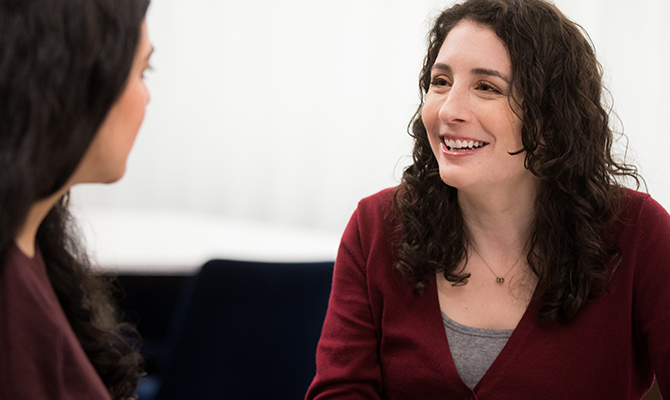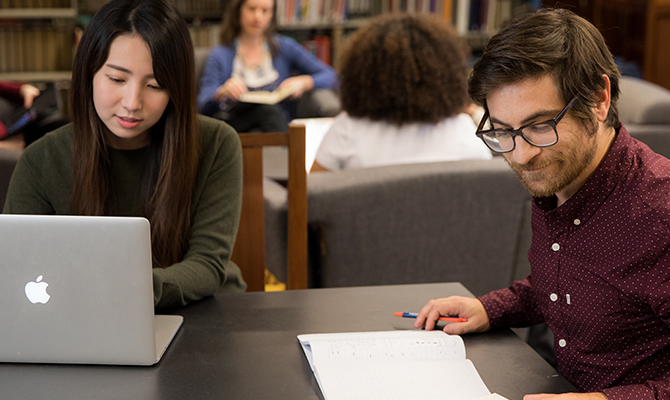
Master’s degree student, Drexel University College of Medicine
Master of Science in Pharmacology and Physiology, Drexel University College of Medicine ’24 —expected
Post-Baccalaureate Studies, University of Pennsylvania ’22
Bachelor of Arts in Psychology and Neuroscience, Wheaton College ‘20
Adele Yang (Post-Baccalaureate Studies, University of Pennsylvania ’22) has always wanted to study neuropsychology—particularly neuropsychopharmocology. “50% of patients on antidepressant medication are treatment-resistant, and the side effects are terrible,” says Adele. “That’s ultimately why I decided on drug research rather than clinical psychology. As a patient, I can see how those drugs impact daily life.” When Adele graduated from Wheaton College with a degree in psychology and neuroscience, she hoped to keep her F-1 visa by working as a lab technician while applying to PhD programs in the United States—and then COVID-19 interrupted her job search. Adele browsed hundreds of degree and non-degree programs to continue her career momentum; the Post-Baccalaureate Studies Program stood out as an opportunity to meet her visa requirements while helping her prepare for her future.
To prepare for a graduate degree in pharmacology, Adele needed to complement her undergraduate studies with a solid foundation in medical sciences. At Penn, she took courses in subjects such as cell biology, genetics, histology, developmental biology, immunology, and autonomic pharmacology.
With her medical science credits and high GPA, Adele was accepted in a master’s degree program at Drexel, where she can continue to work with her care team and also explore some potential career pathways; “I actually think it is a perfect fit,” she says. The Master of Science in Pharmacology and Physiology is a two-year program with a thesis track—and an option to transfer into a PhD program, although Adele is considering taking some time to work in industry before returning to academia. For the time being, she works in a lab that develops drugs treating addiction, and appreciates the solid science foundation she developed at Penn. “Cell biology really helped me survive a graduate biochemistry class, histology covered the foundation for my graduate physiology class, and autonomic pharmacology class served as a preview for the graduate pharmacology course” she says. “Grad school is more in-depth, but those classes saved me a lot of time.”
Although her family and peers were initially skeptical of the benefits of a nondegree program, Adele points out that a year or two of non-degree study is nothing compared to her long-held dream—and the long-term goal of training and a career in medical research. “For me, it’s a lifetime thing,” she explains, “and the post-bacc program opens a lot of doors.”






